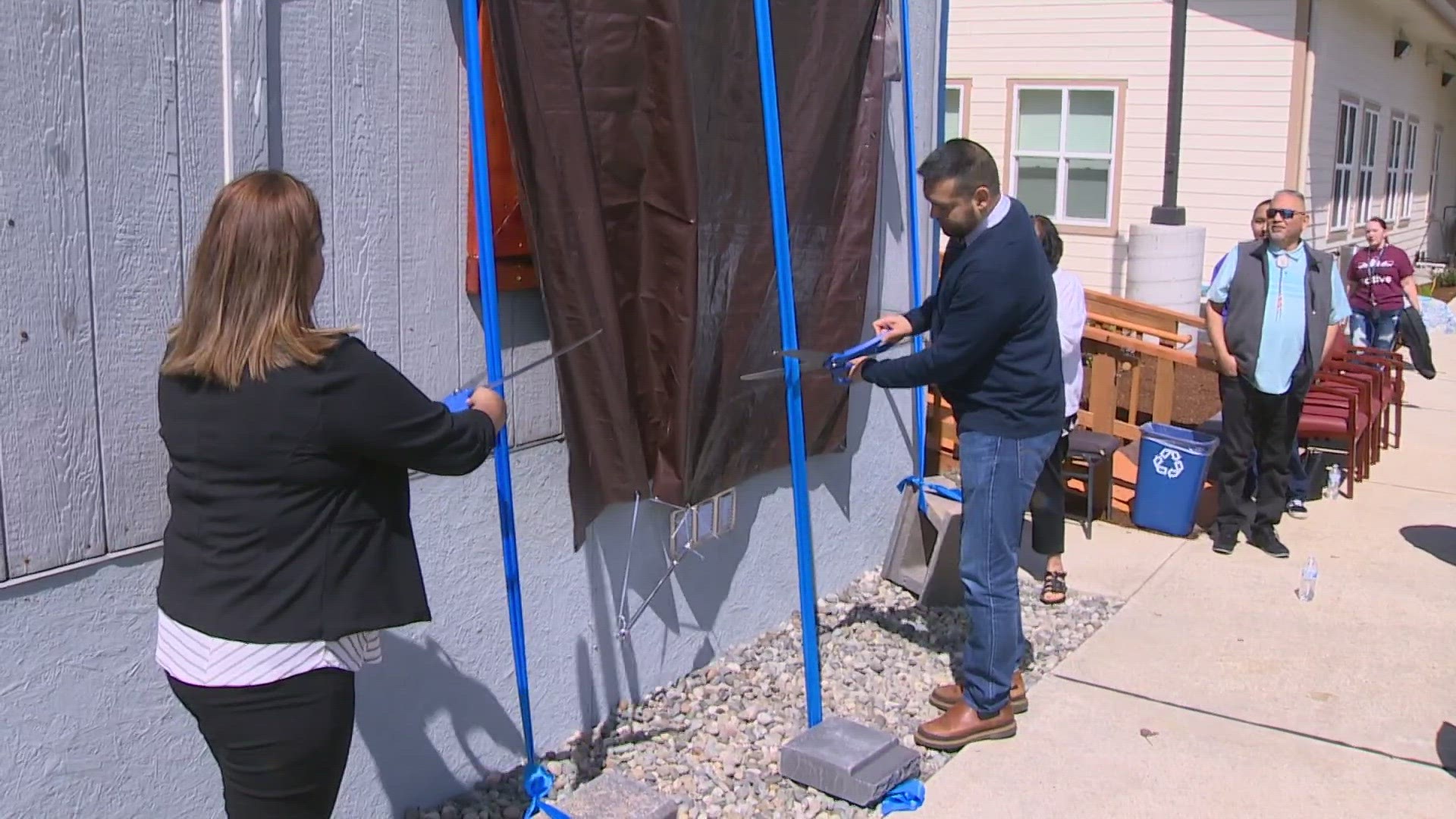LUMMI NATION, Wash. — The fentanyl crisis has touched every corner of this country, but its grip has been especially tight on Indian reservations.
Now, long sought after help is coming to one western Washington reservation. Signs of the opioid epidemic are all over the Lummi reservation.
The signs hang on power poles and in trees pleading for prayers, healing and salvation. One spotted on the reservation reads, "Dear Lord, age 12. I have a fentanyl habit. I feel so all alone. It's hard to breathe. I feel I might die. Save me, please."
"Seeing what is going on is heartbreaking," said Rosa Revey-Jacobs.
Rosa is watching her daughter suffer through fentanyl addiction.
She lost custody of her 5-month-old son and is on the verge of homelessness.
"As a mother I just want to make things better, but I can't," Rosa said. "That's what we want for our children, to make things better for them."
The opioid crisis has hit Indian country particularly hard.
According to the CDC, Native Americans have the second highest opioid overdose rate in the country, and the second highest death rate.
On Thursday, members of the Lummi tribe sang a song of prayer, hope and healing.
The Tribe unveiled its new "stabilization and withdrawal recovery center." The seven-bed facility will give people in recovery a place to sleep at night and continue their treatment after the health clinic closes for the day. This keeps those in recovery from returning to the temptations found on the street.
"It's a good day at Lummi Nation," said Lummi Chair Tony Hillaire.
Treatment will also involve what is called "cultural healing."
"It's just to allow them to really understand their own culture and get reintroduced to it because for so long their sole focus is their addiction, getting their next pill and survival," said Dr. Jesse Davis, the center's medical director.
The hope is to help reverse generations of trauma brought on by murdered and missing loved ones, boarding school alienation and addiction.
Rosa hopes it's a sign of better days to come.
"All of our families are affected by drugs," she said. "This is hope for our families. It's hope for our people."

